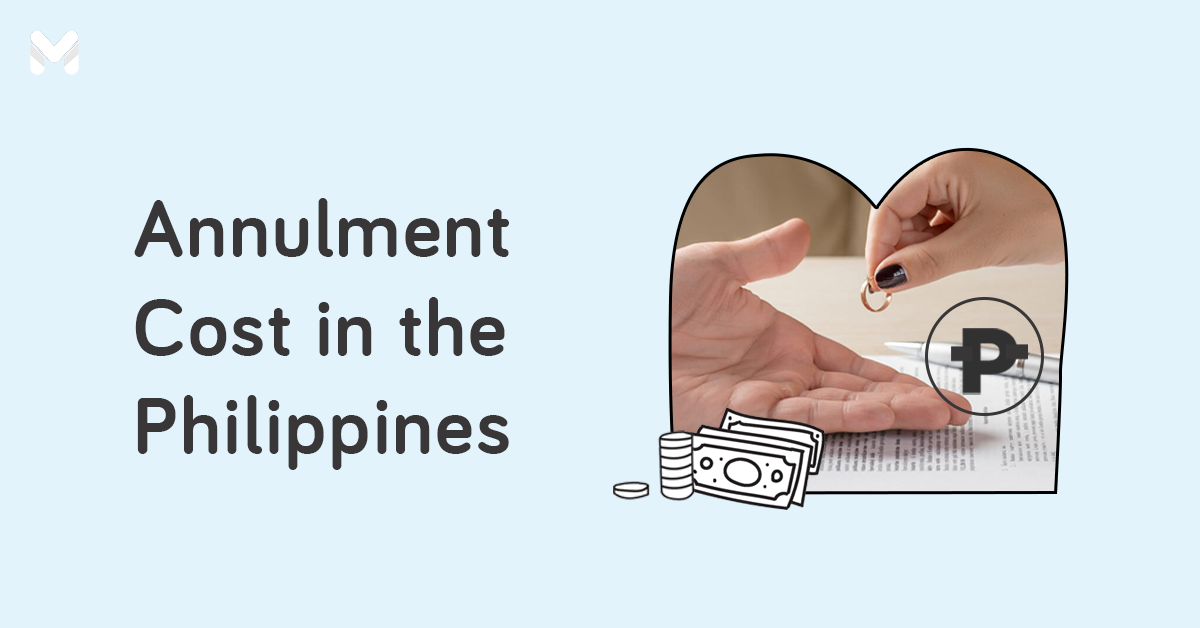"May extra money ka ba diyan? Pautang naman."
Sick and tired of hearing this for the nth time? Wondering how to say no when someone asks to borrow money? It's hard to refuse someone dear to you, but at the same time, you don't want to compromise your own finances.
Utang is part of the Filipino culture, so much so that half of Filipino adults have outstanding loans, based on the latest Bangko Sentral ng Pilipinas Financial Inclusion Survey. 57% of those Filipinos borrow from informal sources, such as family and friends.[1]
In this article, learn how to say no to lending money.
Why is it so Awkward to Lend Money?
Money is a sensitive topic. People don't normally go into specifics about their financial situation, how much money they save, and how much money they owe.
So when money issues enter a relationship, things are bound to get weird and awkward.
Once you lend money to a friend or a family member, your relationship with that person also changes, whether you like it or not. You now have a sense of power over them—aside from being their friend, cousin, niece, or nephew, you're kind of a loan officer as well.
And because it's a loved one you're loaning money to, there's no guarantee when—or if—they'll pay you back. No matter how well you think you know someone, the way they handle their money may still surprise you.
How to Say No When Someone Asks to Borrow Money
Got family or friends who keep asking for money? It's tough, especially if you're rejecting someone truly in need.
Fortunately, there are guilt-free ways to do it. Here's how to politely decline someone borrowing money:
👉 Keep Your Financial Status Private
-4.png?width=600&height=400&name=Pics%20for%20blog%20-%20600x400%20(46)-4.png)
Most of the time, friends and family approach you for money because they know you can afford to lend it to them. How?
They see your online purchases, food adventures from various restaurants, and luxurious weekend getaways on your social media accounts. Since you look financially comfortable, surely you can spare a few thousand pesos for someone in need, right?
If you refuse to be on someone's radar whenever they're facing cash emergencies, avoid sharing too much about your finances and your lifestyle. No one needs to know how much money you make, where you invest it, and what you spend it on. Keep your finances private so that friends and family won't get the impression that you're a friendly neighborhood utangan.
👉 Consider Your Relationship with the Borrower
Received a call or a message from someone borrowing money? First, consider your relationship with that person. Your response will depend on how close you are and how long you've known each other.
Is it someone you barely spoke to at your previous job, or perhaps just an online acquaintance? It should be very easy to say no directly.
But if it's a close sibling, cousin, or aunt, that's a different matter. Choose your words carefully so as to not hurt their feelings and strain your relationship.
👉 Don't Be Pressured Into Saying Yes
-4.png?width=600&height=400&name=Pics%20for%20blog%20-%20600x400%20(47)-4.png)
Before you actually say no to any loan money request, sort out your feelings about it first.
The pressure to give in often comes from the need to repay one's utang na loob, fear of confrontation, or the Filipino's innate generosity. Sometimes, borrowers try to take advantage of this. They push you to make a quick—and favorable—decision by creating a sense of urgency.
While some may call it selfish and harsh to decline, remember that you're in no way obligated to give in to any request that's against your will. It's your hard-earned money we're talking about—so it's your call.
👉 Just Tell Them You Don't Loan Money
How to tell someone you can't lend them money? For personal finance expert Fitz Villafuerte, it's simple: Tell them point-blank that as a personal rule, you don't lend money to friends[2] (or relatives, whichever is applicable). Such a statement is direct and doesn't pass judgment to the person.
Don't delay your response. Avoid being wishy-washy about it—seenzoning them on Facebook and hoping they'd get the hint won't help.
Read more: Bye, Petsa de Peligro: Here are 15 Salary Loans to Tide You Over
👉 Practice Saying No
-4.png?width=600&height=400&name=Pics%20for%20blog%20-%20600x400%20(48)-4.png)
Train your mind to make saying no a habit, especially if you're naturally a people pleaser who always says yes. Research shows that planning and rehearsing your response before you receive a request allows you to respond in a manner that's consistent with your intentions.
Come up with a default non-committal response (e.g., "Sorry, I can't loan money to you this time" or "Pasensya na, medyo tight talaga ang budget") and practice saying it before you're confronted with such a request.
👉 Listen and Empathize
That said, it's different when someone close to you asks for your help. Give your family member or friend the benefit of the doubt—they may really be in serious financial trouble.
Listen intently, show genuine concern, and try your best to understand the situation—without promising or committing to anything.
This way, you make the person feel you aren't disregarding his or her feelings. Also, getting a clear picture of the potential borrower's circumstances will allow you to help without having to loan money.
Read more: How to Get an Emergency Loan in the Philippines ASAP
👉 Give Yourself Time to Think of an Appropriate Response
How to refuse lending money to family or friends? Depending on the relationship, an outright "no" may cause tension between the two of you.
After listening to the person, tell them you need time to check your budget and assess your finances. Give it around one to three days—this is enough time for you to think of a good response and for the person to figure out other ways to obtain money.
👉 Clarify Your Priorities
-2.png?width=600&height=400&name=Pics%20for%20blog%20-%20600x400%20(49)-2.png)
It's easier to say no if you know your financial priorities—like saving up for your child's education or a home or car purchase.
Prioritize your own finances—and be firm about it. After all, you can't help others financially if you can't even sort out your own finances.
👉 Explain Your Financial Situation Honestly and Calmly
Be honest and assertive about your reasons for turning down the loan request. But be calm as well—avoid speaking in an angry tone, no matter how exasperated you are with the person or situation.
Try to get the would-be-borrower to understand your financial situation and goals, and how lending money may not fit into the picture. Say, "I'd really love to help you, but I'm on a tight budget right now, just like you. Sorry, I can't afford to lend you money right now."
Such a response doesn't give much detail but clearly states your point without hurting their feelings. If that person is really close to you, they will understand and will not hold a grudge against you.
Don't overexplain. Sharing more details than necessary might make the person think you're just coming up with excuses.
👉 Offer to Help in a Different Way
Can't afford to support your loved one financially? If you still really want to help, you can do so without shelling out cash.
Sincerely offer non-monetary assistance. This will soften the impact of rejection and help the person become less reliant on financial help from family and friends.
Here are some ways to support family or friends who try to borrow money:
- Tell them to get a low-interest personal loan. This allows them to borrow money at a low cost. If you have extra time, assist them in preparing the requirements or research anything they need to know to qualify and get approved for a loan. In the meantime, help them compare personal loan options via Moneymax:
ProviderLoan AmountMonthly Add-on RateLoan TermMinimum Annual IncomeApproval TimeUnionBank Personal Loan Up to ₱2 million26.9% per annum12 to 60 months₱250,000As fast as 5 minutesUNO Digital Bank Personal Loan
Up to ₱2 million26.9% per annum12 to 60 months₱250,000As fast as 5 minutesUNO Digital Bank Personal Loan.png?width=149&height=52&name=Unobank-Logo-Colored_Horizontal-Medium%20(for%20MMX).png) ₱10,000 to ₱500,0001.79% per month (corresponds to annual contractual rates or annual percentage rates ranging from 35.78% to 37.54%)Six to 36 months₱240,000Five to seven banking daysMetrobank Personal Loan
₱10,000 to ₱500,0001.79% per month (corresponds to annual contractual rates or annual percentage rates ranging from 35.78% to 37.54%)Six to 36 months₱240,000Five to seven banking daysMetrobank Personal Loan ₱20,000 to ₱2 million1.25% to 1.75%36 months₱350,000Seven banking daysBPI Personal Loan
₱20,000 to ₱2 million1.25% to 1.75%36 months₱350,000Seven banking daysBPI Personal Loan ₱20,000 to ₱3 millionMaximum annual contractual rate of 28.67%12 to 36 monthsInquire with BPIFive to seven banking daysTonik Credit Builder
₱20,000 to ₱3 millionMaximum annual contractual rate of 28.67%12 to 36 monthsInquire with BPIFive to seven banking daysTonik Credit Builder ₱5,000 to ₱20,0004.84%Six to 12 monthsInquire with TonikTwo banking daysTala
₱5,000 to ₱20,0004.84%Six to 12 monthsInquire with TonikTwo banking daysTala ₱1,000 to ₱25,0000.43% dailyUp to 61 daysNoneFive minutes to 24 hoursHSBC Personal Loan
₱1,000 to ₱25,0000.43% dailyUp to 61 daysNoneFive minutes to 24 hoursHSBC Personal Loan.svg.png?width=130&height=35&name=2560px-HSBC_logo_(2018).svg.png) ₱30,000 to ₱500,0000.65%Six to 36 months₱168,000Five to seven banking daysCIMB Personal Loan
₱30,000 to ₱500,0000.65%Six to 36 months₱168,000Five to seven banking daysCIMB Personal Loan ₱30,000 to ₱1 millionAs low as 0.83%12 to 60 months₱180,000One to two banking daysMaybank Personal Loan
₱30,000 to ₱1 millionAs low as 0.83%12 to 60 months₱180,000One to two banking daysMaybank Personal Loan Up to ₱1 million1.3%Up to 36 months₱300,000Inquire with MaybankRCBC Bank Personal Loan
Up to ₱1 million1.3%Up to 36 months₱300,000Inquire with MaybankRCBC Bank Personal Loan ₱50,000 to ₱1 million1.3%Six to 36 months₱360,0005 to 7 banking daysPSBank Personal Loan
₱50,000 to ₱1 million1.3%Six to 36 months₱360,0005 to 7 banking daysPSBank Personal Loan ₱20,000 to ₱250,000
₱20,000 to ₱250,000- 42.88% Effective Interest Rate per annum for a 24-month term (term loan)
- 41.29% Effective Interest Rate per annum for a 36-month term (Term Loan)
- 34.49% Effective Interest Rate per annum for 12 months (Revolving Loan
24 or 36 months₱180,000Five to nine banking days - Help them find and apply for financial assistance for their specific needs, such as student loans, scholarships, and grants.
- Help them find a raket or side business. Share any opportunity or idea you know that might help them earn extra income.
- If they can't seem to get their finances in order, offer to help review and track their budget.
Read more:
- 16 Loans With Easy Application and Approval in the Philippines
- Borrow Easily: How to Get Cash Loans Without a Bank Account
👉 Stand Your Ground
-3.png?width=600&height=400&name=Pics%20for%20blog%20-%20600x400%20(50)-3.png)
You now know how to say no to family or friends borrowing money. But what if they keep pestering you?
No matter what, stay firm with your decision. Reiterate what you've said to let them know that you've made up your mind and there's no changing it. Eventually, they'll understand your decision.
If they react negatively, let them know how they're making you feel. Tell them you value your friendship or relationship—but that their actions make you feel uncomfortable, stressed, or unhappy, especially since you've made it clear you won't be able to loan money. People who truly love you care about your feelings and wouldn't want to hurt you.
If they don't back down, just let things be, focus on the good, and move on. The situation may have cost your relationship. But at least you aren't stressing over collecting their debt or running short of your budget.
Final Thoughts
Never feel guilty about declining to loan money to family or friends. After all, you have your own needs and priorities to take care of. Can you bear touching your child's college tuition fund or your family's food budget just because you can't say no?
Refusing to loan money isn't being selfish. In the long run, you don't help people by lending them money. It only teaches them to be more financially dependent on others instead of helping themselves.

Sources:
- [1] Financial Inclusion in the Philippines (BSP, 2023)
- [2] Handling Friends Who Borrow Money (Fitz Villafuerte, Ready to be Rich, 2024)







_1200x350.png?width=751&height=219&name=UB_PL_Generic_2_(Jan_2025)_1200x350.png)
_1200x350.png?width=751&height=219&name=UNOBank_Loan_Generic_Ad_(Apr_2024)_1200x350.png)


